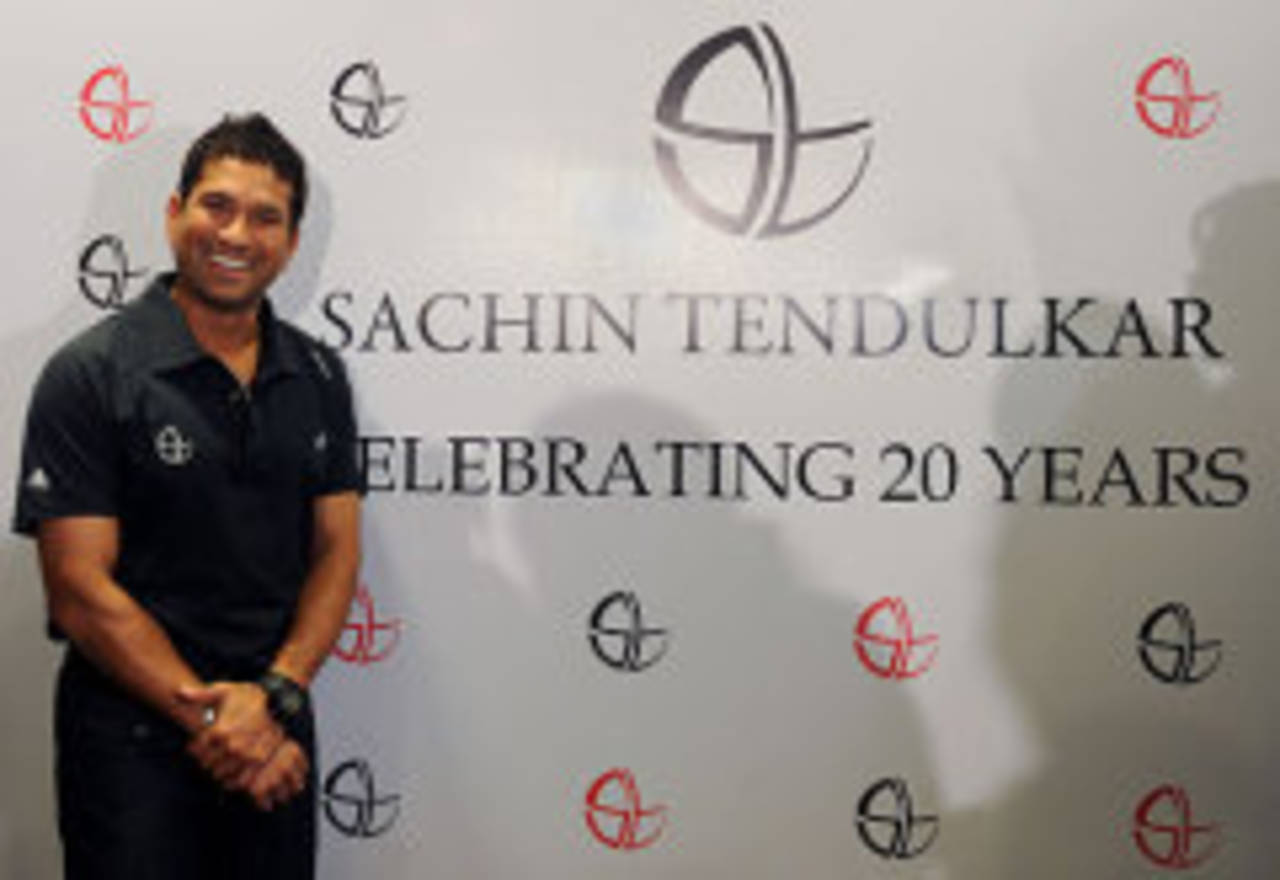Three from Tendulkar
There's something about the passion Sachin inspires that makes cricket worth it
Tanya Aldred
27-Nov-2009

Genius, strength of character, compassion, and a way with the ball • AFP
Oh Sachin, shall I compare thee to a summer's day? Thou are more lovely and...
Oh dear, there is something about Tendulkar that draws out the sixth-form poet in me, an instinct that should have been locked firmly away back in 1991. There's something about his genius and his strength of character and his compassion and his (now shorn) curls. Something about the way he hits the ball with such deliberation and power but yet such precision and grace. Something about the passion he inspires that makes cricket worth watching and writing about. So I know it's a little late, but here are the three Tendulkar moments that sing to me.
On an English spring day in 1999, India and Kenya travelled to the West Country for their World Cup group game. Indian supporters, in their blue shirts and with painted faces, filled Bristol with a sound to quite new to me, I'd never been to a game where British Asians made up most of the supporters. Then the noise crescendoed, as if someone had removed a mighty muffler: Tendulkar walked in. As he strode out it was 92 for 2; 101 balls later he flicked the last of the innings for six over midwicket. He made 140, and as he hammered and cut and drove the ball with a sort of mastery, he seemed in a different world. He probably was. Two days earlier he had been at his father's funeral in Mumbai. At the end, amid the celebrations, and with great dignity, he quietly dedicated his innings to Ramesh Tendulkar. Oh, and Rahul Dravid scored a century too - not that anyone seemed to notice. He'd get used to that.
Two years later I was on my first tour of India. The heat was rising in Ahmedabad and by mid-morning had drained the energy even from the fingertips. It was December and the dust kicked up from the road on the long ride to the ground and the cattle seemed to groan as they passed by. This third morning of the second Test between England and India, the scooter park was much fuller than it had been - Tendulkar had been two not out overnight - and grew yet more crowded as he progressed, as if each stroke belched another 200 vehicles into the yard. Tendulkar was regal, disdainful. Nasser Hussain, intense thinker that he was, tried to contain him with a version of leg-theory, but he swatted balls away from outside off stump and deposited them through the leg side without lowering himself to a this-is-easy smirk. I can still hear the crack of one shot off Matthew Hoggard and remember looking for it on the grass to find it had already crossed the boundary. The facilities for the crowd were basic verging on grotty, but you'd never have guessed it from the enthusiasm and the noise. It grew like a rapidly approaching herd of buffalo: Sa-chin, SA-CHIN, SACHIN-SACHIN, and sticks were beaten against railings in unison, and feet were stamped and sari-ed grandmothers looked ready to swoon. I'd never heard a noise like it, and never have since. He made 102, practically perfect, runs. And when he was out the ground emptied. But it didn't matter.
In August 2007, India were practising for the one-day internationals against England and I dragged my one-year-old and three-year-old to Old Trafford to see Tendulkar for themselves (I had made the assumption that he might be about to retire and this might be their one chance to see him. Hah.) We were too late for the nets but hovered around outside in the car park, in the sun, with about 30 other families waiting for the Indian team to make the 20-metre walk to the coach. The players pottered out in dribs and drabs and the children were beginning to lose interest in the whole enterprise, when at last a short, sunglassed, cropped-haired fellow emerged. No, he didn't bend down and give them his autograph and a winning smile, but walked past briskly, shyly almost, and climbed aboard the coach as fathers pleaded desperately for his autograph. The children saw him for all of five seconds, but seemed pleased, and I felt I'd done my duty. Because unless he keeps going for another five years he will be nothing more to them than another old player in another old book. Which is a terrible thought. Although, Sachin, but thy eternal summer shall not fade. Oh damn...
Tanya Aldred lives in Manchester. She writes occasionally for the Guardian